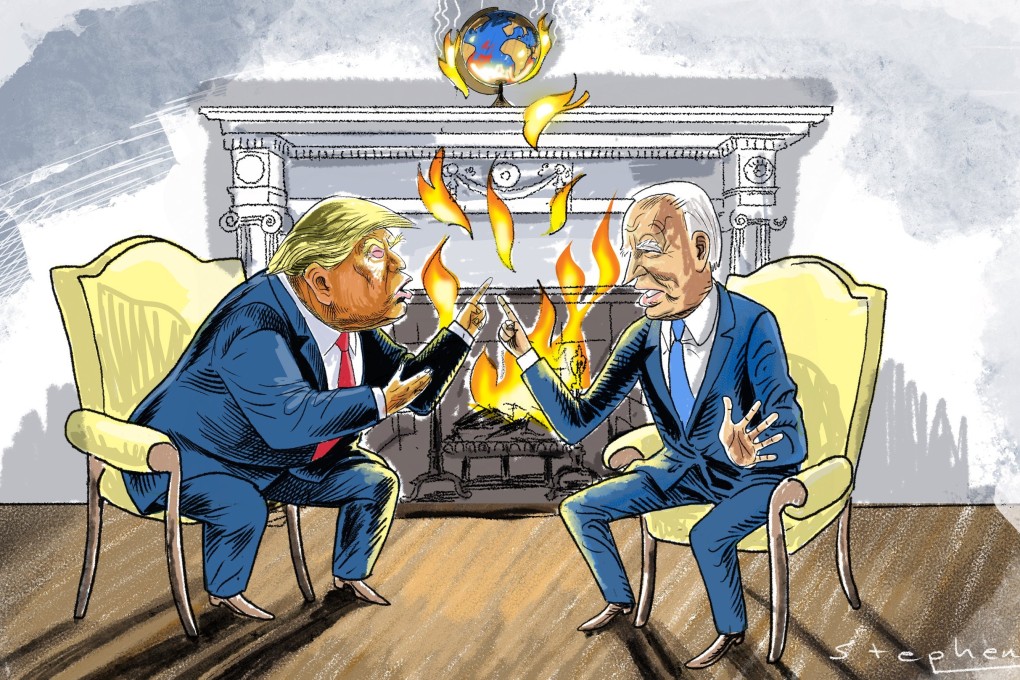Advertisement
Opinion | A world in crisis needs a smooth US presidential transition
As US allies face mounting challenges and tensions rise with adversaries, Joe Biden and Donald Trump must work together to manage uncertainties
Reading Time:4 minutes
Why you can trust SCMP
1

On December 7, South Korea’s President Yoon Suk-yeol survived an impeachment motion following his abrupt declaration of martial law on December 3. Yoon had attempted to paint the liberal-left opposition as pro-communist and a threat to South Korea’s democracy but this failed to resonate with the public.
While 18 legislators from the ruling People Power Party joined opposition parties to nullify the declaration, lawmakers could not get enough defectors from Yoon’s party to reach the constitutionally required two-thirds majority for impeachment.
Nevertheless, Yoon’s administration is unlikely to advance any meaningful agenda in this climate. The implications of South Korea’s political paralysis extend beyond its borders. Indeed, the crisis is part of a broader, dangerous pattern emerging in the weeks leading up to the US presidential transition on January 20.
US President Joe Biden’s administration, rather than operating as a lame-duck government, has taken aggressive measures on several fronts, from escalating sanctions on China’s semiconductor industry to authorising Ukraine to use US advanced weapons that are capable of striking Russian territory. These moves, though perhaps well intentioned, could provoke significant blowback for Donald Trump’s incoming administration and complicate any efforts to recalibrate US foreign policy.
South Korea’s foreign policy trajectory under Yoon has already dramatically shifted. His administration has aligned closely with US-led Indo-Pacific strategies to counter China, extended US nuclear deterrence on the Korean peninsula and abandoned inter-Korean rapprochement. Yoon has also effectively internationalised tensions with North Korea by supporting Nato’s position on Ukraine.
Now, South Korea’s paralysis threatens the US-Japan-South Korea trilateral security partnership and risks creating a power vacuum on the Korean peninsula. North Korea could escalate tensions, especially with its comprehensive strategic partnership treaty with Moscow now in effect. The regional balance could collapse without South Korea’s participation, weakening US influence in East Asia at a critical juncture.
Advertisement
Select Voice
Choose your listening speed
Get through articles 2-3x faster
1.1x
220 WPM
Slow
Normal
Fast
1.1x
.jpg?itok=DJ5XFWbm&v=1725256567)
.jpg?itok=DJ5XFWbm&v=1725256567)